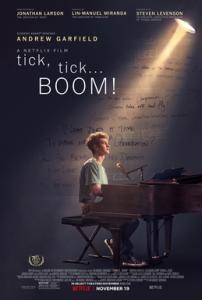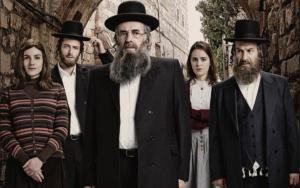
Revolutuionary Road is directed by Sam Mendes who also brought us the 1999 multi-Academy Award winning film American Beauty. This new film revisits many of the same themes as American Beauty: white upper-middle class prosperity and accompanying ennui and the search for meaning in a life as empty as the sweet little house in the suburbs that Frank and April Wheeler, the subjects of the current film, buy.
Revolutionary Road, however, goes back forty years before American Beauty to the pretend pretty life of a couple who set up house in a kind of cultural vacuum. Their parents must have come of age and married during the depression (although they never appear) and now, in post-World War II America, April and Frank Wheeler (Kate Winslet and Leonardo di Caprio) seem to have only magazines for their role models; they behave, when they are not fighting, as if they are in a 1950’s “wholesome” television show. When the polite facade crumbles, their heartbreaking angst bursts forth in screaming matches. We know their relationship is doomed from the beginning. Seeking a reason to exist, both have affairs.
Kathy Bates is the real estate agent who sells the perfect little house to the perfect couple. At the end, when she is talking (and talking and talking) to her husband about how the Wheeler’s never were the right people for that house. he turns off his hearing aid, staring into nothingness. They are an older couple, but banality has descended on them as well; Bates is in blythe denial and her husband can only hang on by turning her off.
Revolutionary Road is based on a 1961 novel by Richard Yates. I grew up in the 1950’s and 60’s, and I think Yates, and by extension, Mendes, captured the era well. Revolutionary Road adds insight, I think, into why Woodstock happened, why the peace movement erupted along with the sexual revolution and why hippies jumped off the grid. The 60’s could never have happened without the rejection of the 50’s.
It surprised me that Yates, in this his first novel, was able to capture the culture and ethos so well, when he was living in those times. It takes extraordinary vision and sensitivity to communicate ones own contemporary life from the inside out …. But then Walker Percy accomplished this as well in his first novel The Moviegoer, published the same year (and won the 1962 National Book Award). That Sam Mendes, decades later, is able to recreate the 50’s life and soul so well attests to his great talent as a filmmaker, creative genius and cultural imagination.
From a faith perspective, the story ignores the influence of religion. Would faith have made any difference to April and Frank? I think even in religious families of the era the search for meaning often questioned the status quo, a status quo that failed to answer the deepest longings of the human heart in a changed world.
What is jarring, yet once again insightful and relevant, is the argument April and Frank have when she becomes pregnant with their third child. She speaks of abortion and her reasons are complex: they reflect existential desperation as well as inconvenience. Be warned, the tragedy of her suburban despair is heartbreaking and difficult to watch.
Principles and beliefs that Americans took for granted needed to be re-explained in meaningful, truthful, and relevant ways, and that “new” generation of young families, could have looked to faith. But they didn’t, at least not the Wheeler’s and their generational band.
Revolutionary Road is a serious, difficult, jarring film without any transcendent American beauty. It is a depressing experience in existential angst. (Where is Woody Allen’s annoying humerous neurosis when you need it?)
Nevertheless, it is worth seeing if only to study the times, to understand where we are today – or perhaps to understand our parents or grandparents and their times.
From a media literacy education perspective, I would examine how the film shows the influence of pretend life of 1950’s American television. It is a very intelligent film; watch the parallel construction throughout, between April and Frank, home and work; family and neighbors; expectations and reality, and “how we should be” vis-vis how we really are.
This is also a film about communication in a marriage – or lack of it. The difference between hearing and listening; why get married? A question the Wheeler’s never really ask themselves. It’s just what you do.
Hope arises from the film simply because the alternative and consequences that April’s character chooses, are unacceptable.
Di Caprio and Winslet are excellent in their roles, but it is not a feel-good story of self-sacrifice. It is about lives examined generations too late.












